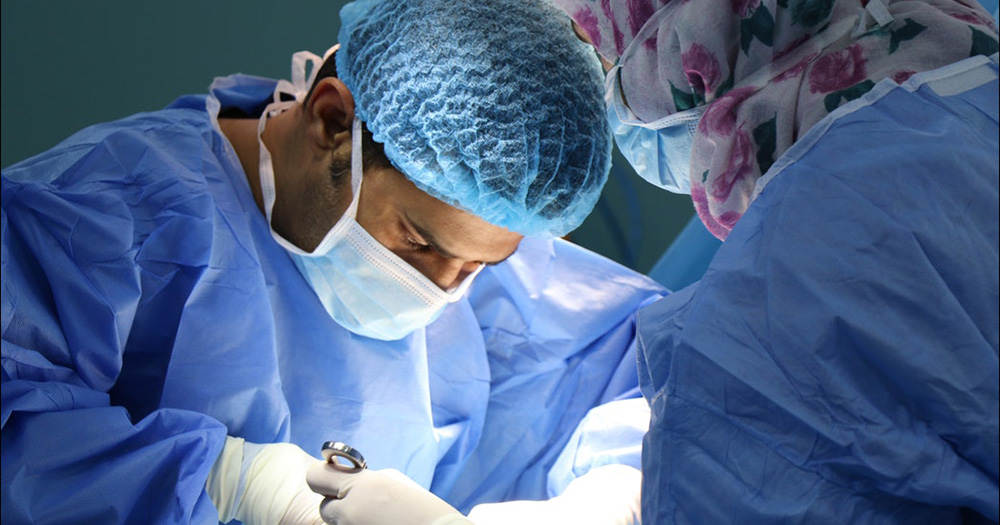For the first time in history, doctors have transplanted an organ from a living HIV Positive donor to a HIV Positive recipient.
The surgery, a kidney transplant from 35 year-old Nina Martinez to an anonymous recipient, was carried out by doctors at Johns Hopkins Hospital, a research university in Baltimore, Maryland. Following the successful procedure, both donor and recipient are recovering well and the recipient is free of kidney dialysis for the first time in a year.
Martinez acquired HIV through a blood transfusion at six weeks old and was diagnosed at age eight. She chose to donate her kidney to an anonymous patient after the friend she hoped to give it to died last autumn. In a news conference yesterday, she said she had wanted to honour her friend by donating her kidney and thereby making a statement about her status as a HIV Positive organ donor.
“I wanted to show that people living with HIV were just as healthy,” she said. “Someone needed that kidney, even if it was a kidney with HIV. I very simply wanted to show that I was just like anybody else.”
“Society perceives me and people like me as people who bring death,” Martinez told The Washington Post before her surgery. “And I can’t figure out any better way to show that people like me can bring life.”
Historically, people living with HIV have had difficulty participating in organ transplants whether as recipients or donors. Organ transplant centres hesitated for a long while to give organs to HIV Positive patients in need, fearing that the medications used to prevent organ rejection – which suppress the immune system – could accelerate the onset of AIDS in the recipient.
However, some centres carried out transplants despite the risks, and evidence accumulated that recipients with HIV survived at rates similar to those without the virus. By the 2000s, doctors and patients had gained enough confidence to consider the possibility of transplants from HIV Positive donors. Advocates in the US began to push back against a law that forbade those with HIV from donating their organs.
This push for change worked – in 2013 the HIV Organ Policy Equity Act, known as the HOPE Act, allowed transplants from HIV Positive donors to HIV positive recipients. Kidney and liver transplants from recently deceased donors began three years later and, as of March 24, 116 of these transplants have taken place. As a result of the legislation, the waiting time for HIV Positive patients willing to accept an organ from a HIV Positive donor has been reduced from years to months.
Under the HOPE Act, recipients and living donors must meet requirements such as undetectable levels of HIV, a normal CD4 count and no opportunistic infections. Until this week, though, a transplant from a living donor had never taken place. Doctors long believed that it would be dangerous to leave a HIV Positive person with only one kidney – but this belief was called into question when, in 2017, a study of 42,000 people by researchers at Hopkins found that the risk of developing kidney disease is not much higher for healthy individuals living with HIV than it is for individuals without the virus.
“People with HIV today can’t donate blood. But now they’re able to donate a kidney,’ said Dorry Segev, the Hopkins School of Medicine professor who led the team responsible for the transplant. He said of those living with HIV “They have a disease that 30 years ago was a death sentence. Today they’re so healthy they can give someone else life.”
This week, for the first time in the world, a person living with HIV donated a kidney. And I got to do her operation. Wonderful culmination of advocacy, science, and clinical care.
— Dorry Segev (@Dorry_Segev) March 28, 2019
Speaking at yesterday’s news conference, Dr Christine Durand, another Johns Hopkins surgeon involved in the transplant, encouraged HIV Positive people interested in organ donation to sign their organ donor cards and contact their local transplant centre. “I am hoping this leads to a ripple effect, and many people with HIV will be inspired to sign up as an organ donor as a result,” she said.
Currently, more than 113,000 people are on the waiting lists for organ transplants in the US – and most of these people are waiting for kidneys. It is hoped that this breakthrough will increase the availability of organs for patients with HIV, moving these patients through the lists faster than ever and thereby decreasing waiting times for HIV Positive and HIV Negative people alike.
© 2019 GCN (Gay Community News). All rights reserved.
Support GCN
GCN is a free, vital resource for Ireland’s LGBTQ+ community since 1988.
GCN is a trading name of National LGBT Federation CLG, a registered charity - Charity Number: 20034580.
GCN relies on the generous support of the community and allies to sustain the crucial work that we do. Producing GCN is costly, and, in an industry which has been hugely impacted by rising costs, we need your support to help sustain and grow this vital resource.
Supporting GCN for as little as €1.99 per month will help us continue our work as Ireland’s free, independent LGBTQ+ media.
